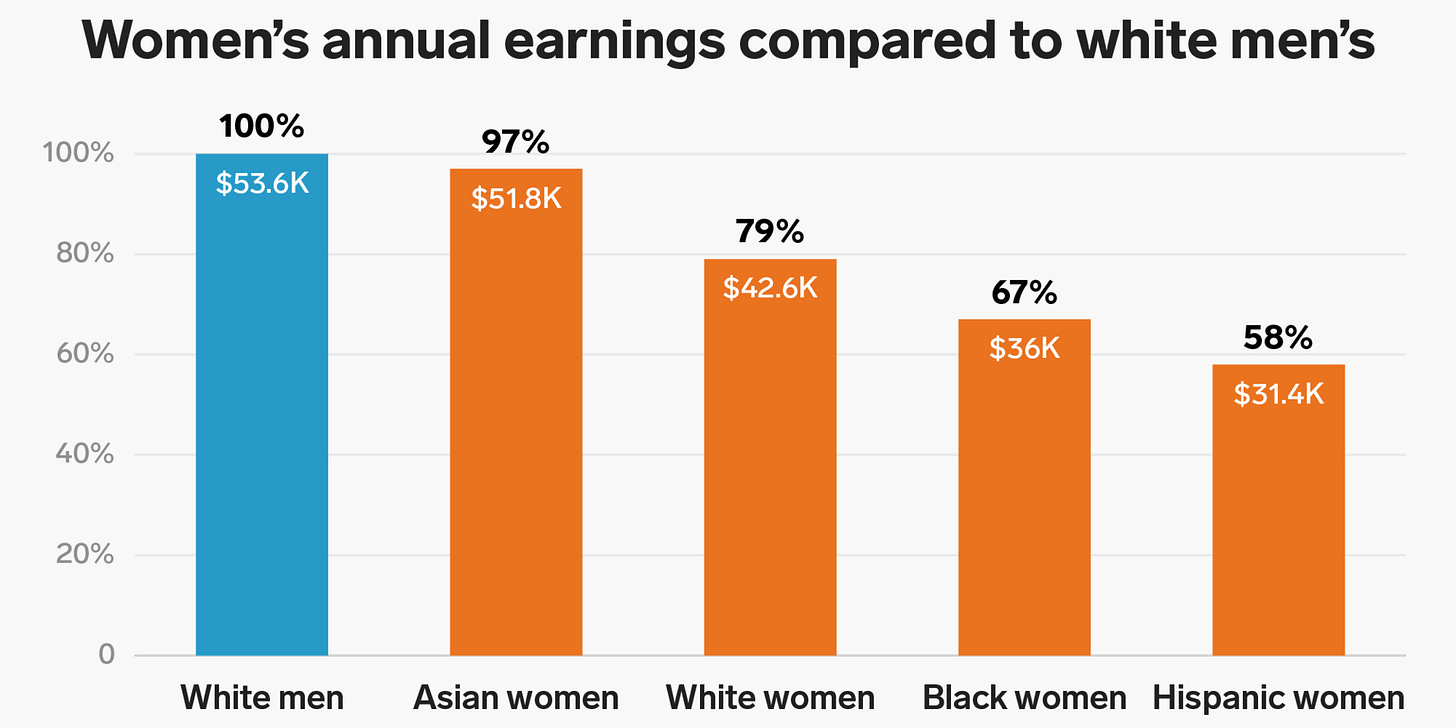A Closed Mouth Don’t Get Fed
Black Women Speaking Up Against Race and Gender Pay Discrimination
Contributor’s Riff
presented by Reality Check on WURD, airs Monday - Thursday, 4-7pm ET, streamed live at WURDradio.com, in Philly on 96.1 FM / 900 AM | #RealityCheck @ellisonreport

by Melody Hudson & Monica Simmons | The Equal Balance Movement
The vivid stories of Black women who feel extreme anxiety in the workplace are countless. Despair. Disbelief. Hopelessness. And all these feelings overwhelm the mind to the point where Black women in the workplace constantly lose focus on the most routine of day-to-day tasks.
Unfortunately, Black women not only face racial discrimination on the job, but we also face pay discrimination when compared to our White male and other female counterparts. Black women are paid .67 cents for every dollar a White male earns, according to Census Bureau American Community Survey data. The numbers aren’t far off when you compare White women making .79 cents to the .67 cents Black women earn. We are facing a crisis happening right before our eyes.

The data show that Black women are overqualified for most roles they hold. In today’s climate, we see more women speaking up for equality and diversity in the workplace.
However, this remains a troubling issue that has yet to be addressed and resolved despite the “girl power” anthem spreading throughout pop culture. Though many organizations are tackling the women equality issue by hiring more women into management and executive roles, that’s not the case for Black women. The playing field isn’t leveled and qualified Black women are not being recognized and offered the same career growth and pay opportunities as their White and other minority female counterparts.
It’s a very real and raw reality for Black women.
According to the Center for Talent Innovation’s “Black Women: Ready to Lead” report, author Tai Wingfield notes:
However, on one critical front black and white women are extremely different. White women are skittish about wanting the top jobs in their organizations: they are ambivalent about wielding power. Black women on the other hand are shooting for those top jobs. They are much more likely than white women (22% vs. 8%) to aspire to a powerful position with a prestigious title.
She goes into further detail in documentary “Invisible Women: Being a Black Woman in Corporate America”.
These are all issues that require solutions from inside and outside of organizations. At the The Equal Balance Movement we’re leading the way with our activism and support for Black Women’s Pay Equality.
First of all: we cannot just hold the offenders accountable. We must also take responsibility for speaking up against these forms of discrimination on the job while demanding race and pay equality. Starting with pay equality, it is highly important that you know the market you’re in and research salary according to years of experience that you hold, along with any accolades or major accomplishments you might have achieved throughout your career. Secondly, it is absolutely okay to ask recruiters what is the pay range for the role you’re applying. Once you find out, increase that salary by 15 to 20 percent. Ask for what you want. Ask for what you deserve.
To reach B|E Note Contributors for media inquiries and other public engagements, contact charles@strategybe.com
